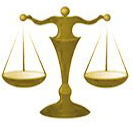The most important consideration for a Judge is to determine if evidence is relevant
What makes a fact relevant if it tends to prove a fact that is substantive of the truth of a case and necessary to the black letter law. Also facts tend to impeach or support the credibility of a witness. This admissibility of evidence can be coined under the idea of the evidence’s probative value. Meaning does it tend to prove or disprove something.
Evidence that is prejudicial in nature is not admissible and will be precluded by the judge
The overriding consideration during a trial is to instill a sense of fairness in the jurors. This is done in the jury instructions by the Court. The job of the jurors is to determine the truthful facts of the case. The judge on the other hand acts like a traffic cop, and tells the attorney or witness when to stop and go.
An attorney can tell the Judge that they object to the evidence, and it is important to state the objection which is being transcribed by a Court reporter, in case there is an appeal later on, otherwise the Court will have difficulty making a ruling. Moreover, it allows the Court and your adversary to understand the basis of the objection so it can be challenged or corrected.
Anytime an objection or the basis for an objection should not be heard in the presence of a jury then it is important to call a side bar. You ask the judge if you can approach, then the Court reporter will approach to the side of the bench of the judge’s chambers where the objection can be hammered out with a final ruling and a ready record for possible appeal.
Testimony has to build a foundation and this is done by a Plaintiff’s attorney in using non-leading questions. You cannot lead a Plaintiff in what to say. The Plaintiff has to testify according to their personal knowledge, not the lawyer’s knowledge of the case and the law.
This is why preparing a witness is important before trial
So that you and your client know what to expect and you can have greater insight into the facts of the case, when you go over it time and again with your client. It helps to be prepared for a trial and will result in less objections as your ask relevant questions that are important for the jury to hear. It takes time to paint an accurate picture of the facts and that is truly the goal, while at the same time advocating for your client.
Any witness can only testify to their personal knowledge
A common objection you may hear if you sit in on a trial is: “Objection – hearsay!” Hearsay is defined as a statement by someone other than the declarant to prove the truth of the matter. The key to admissible testimony that may not be based on a statement made by the witness who has personal knowledge or will testify to what they did or said, but may be based on what are called “hearsay exceptions.”
There are so many hearsay exceptions that I will not start to go through them just now
Only understand that if you get a lawyer for your personal injury case; ask a simple question how many trials have you done. These rules of evidence apply not only in personal injury or medical malpractice cases, but in all types of trials, except perhaps for a small claims matter, where the rules of evidence are relaxed. If you are going to be a witness I have two things to say, always respect the people in the Court (Judge Jurors, Court Personnel, and all in the Court), then most important answer truthfully to the tribunal.
For a free consultation, contact the Law Office of Personal Injury Manuel Moses, Esq. 236 West 26th Street Suite 303, New York, NY 10001 212-736-2624 x11.
Nothing in this statement is intended to be formal legal advice this is a brief very general overview and has not even begun to discuss the debt of these issues. Retain a lawyer to review and advice you in your legal matter.
